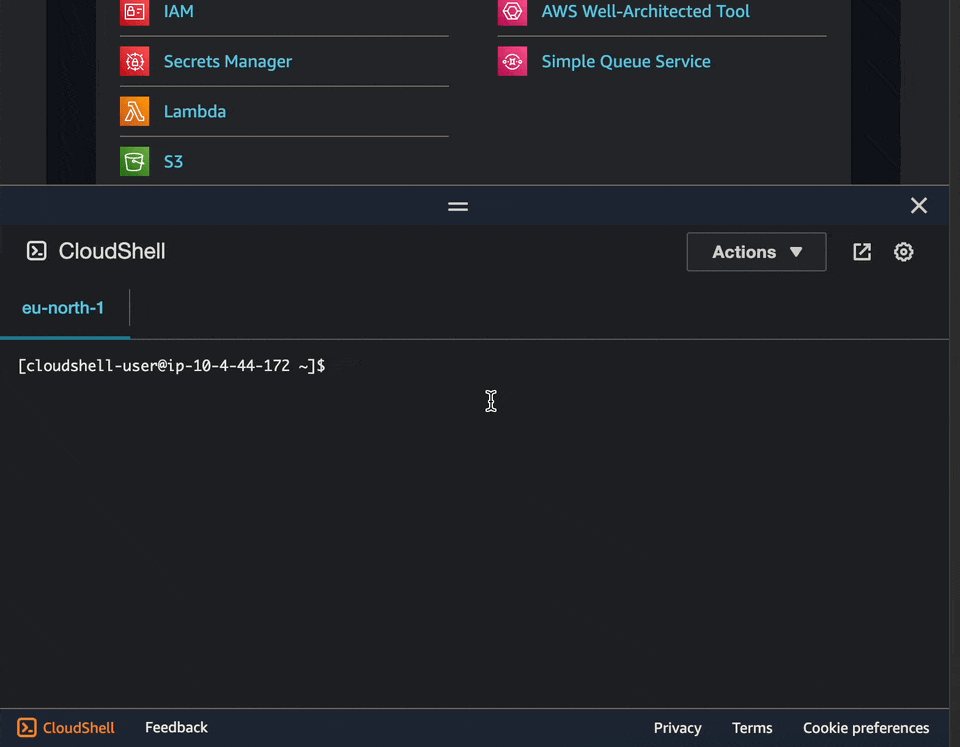
Security News
The Risks of Misguided Research in Supply Chain Security
Snyk's use of malicious npm packages for research raises ethical concerns, highlighting risks in public deployment, data exfiltration, and unauthorized testing.
A script that concurrently deletes common AWS resources like S3 buckets, RDS instances, and EC2 instances across all AWS regions.
This script is designed to clean up various resources within specific AWS regions in parallel using Python threading. This script uses boto3, the AWS SDK for Python, and checks the version of boto3 currently installed on your system against the latest available version.
Before deleting any resources, it will create threads for each AWS region, and perform the deletion of resources in each region concurrently.

AWS CloudShell is a browser-based shell that you can use to manage your AWS resources. Here's how you can use this script in AWS CloudShell:
1- Open AWS CloudShell from the AWS Management Console.
pip install aws-delete-all
2- Run
aws-delete-all
Before you can use boto3, you need to set up authentication credentials for your AWS account using the AWS CLI.
You can install AWS CLI using pip:
pip install awscli
aws configure
AWS Access Key ID and AWS Secret Access Key: You can find these on your AWS account. If you don't have one, you can generate it from the AWS Management Console.
Default region name: The region to which AWS CLI directs its requests. You can set any region you want. For example, us-west-2.
Default output format: The output format for AWS CLI. You can set json.
pip install boto3 loguru
To use this script, simply run it.
python main.py
WARNING: Be very cautious when using this script as it deletes resources.
Resources Deleted This script deletes the following AWS resources in every AWS region:
License This project is licensed under the MIT License. See the LICENSE file for details.
FAQs
A script that concurrently deletes common AWS resources like S3 buckets, RDS instances, and EC2 instances across all AWS regions.
We found that aws-delete-all demonstrated a healthy version release cadence and project activity because the last version was released less than a year ago. It has 1 open source maintainer collaborating on the project.
Did you know?

Socket for GitHub automatically highlights issues in each pull request and monitors the health of all your open source dependencies. Discover the contents of your packages and block harmful activity before you install or update your dependencies.

Security News
Snyk's use of malicious npm packages for research raises ethical concerns, highlighting risks in public deployment, data exfiltration, and unauthorized testing.

Research
Security News
Socket researchers found several malicious npm packages typosquatting Chalk and Chokidar, targeting Node.js developers with kill switches and data theft.

Security News
pnpm 10 blocks lifecycle scripts by default to improve security, addressing supply chain attack risks but sparking debate over compatibility and workflow changes.